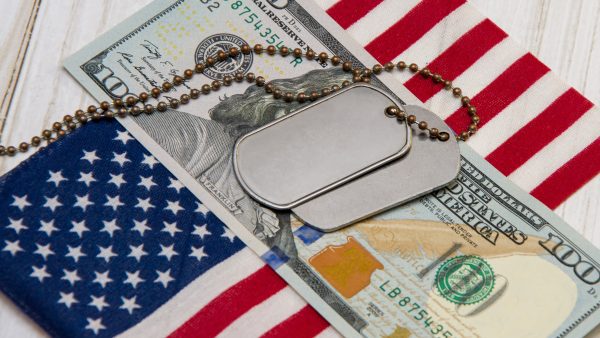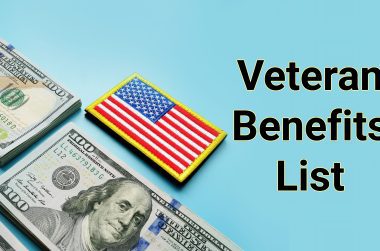Looking for Expert-Level VA Claim Answers?📱Call Us Now! 737-295-2226
Are spouses eligible for VA benefits? What kind of benefits can you enjoy being the life partner of an active, retired, or deceased military service member?
In this Veterans Benefits for Spouses Guide to the Top 11 VA Benefits for Spouses, Veterans and their loved ones alike will learn what it looks like for people when you are spouses eligible for VA benefits.
Moreover, Veterans and military spouses will learn how to qualify for certain benefits such as life insurance, healthcare, assistance with employment opportunities, disability benefits, and education benefits.
So, are spouses eligible for VA benefits? Follow the correct procedures, and the answer is YES!
But what if you are a spouse caring for a Veteran…even then are spouses eligible for VA benefits? The VA may offer support in addition to the benefits that Veterans deserve for themselves.
Service members also deserve benefits that can be used to take care of their families.
If you are a survivor of a service member or a Veteran, are spouses eligible for VA survivor benefits in this case? Survivors and their families may qualify in this instance as well.
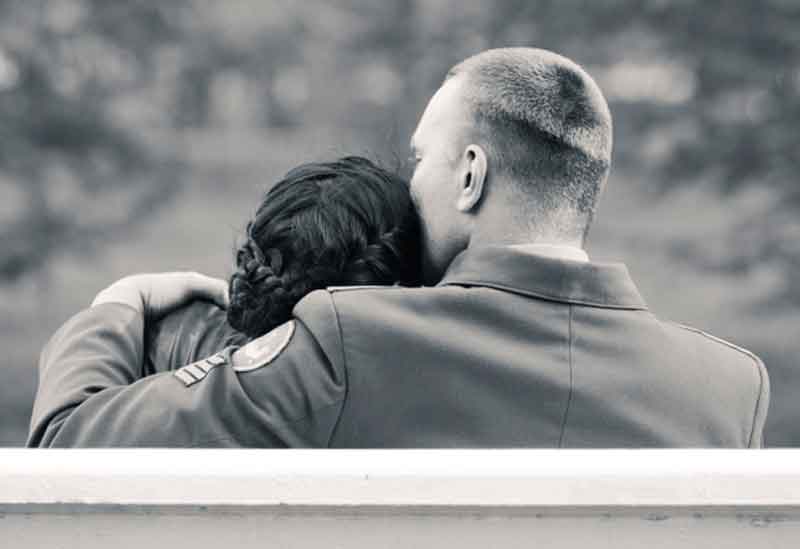
Additionally, VA provides dependent benefits such as assistance with burials as well as survivor pension and compensation.
Veterans know that their families serve right beside them in many ways. Military spouses lead lives full of surprises, sacrifices and challenges.
Therefore, the U.S. Department of Veterans Affairs offers VA benefits for spouses to express gratitude and help balance the hardships that can be faced.
Let us dive a little deeper into each of the benefits mentioned above.
Are spouses eligible for VA benefits?
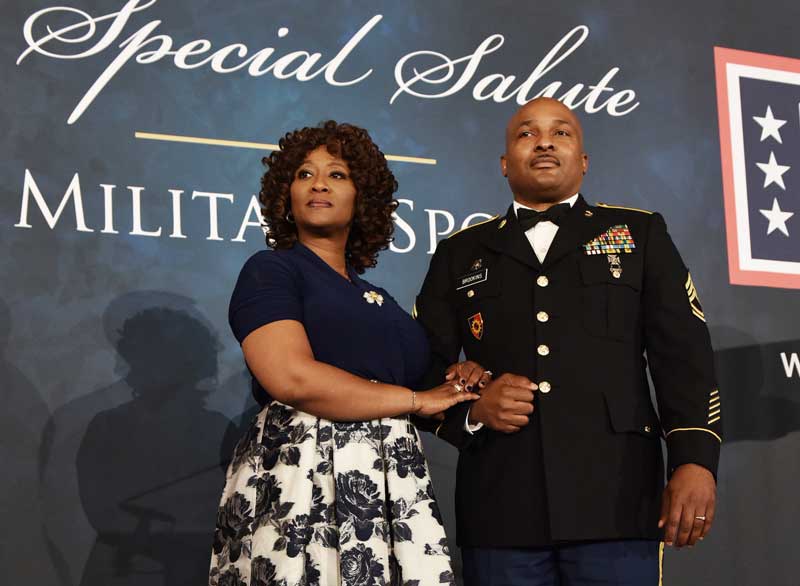
If you are a spouse of an active service member or a Veteran, you may be interested, or even anxious, to find out how to qualify for VA benefits for spouses. Fortunately, the eligibility criteria are not too complicated and consist of the following:
- If you are a spouse of an active or retired U.S. military service member who was injured or has fallen ill during their period of service
- If you are a spouse of a Veteran of the U.S. military and you are performing caregiving duties as well
If you fulfill either one of these two criteria, you fall into the category of people who are spouses eligible for VA benefits.
Moreover, there are educational and healthcare benefits plus additional assistance that will apply to the deceased Veterans’ surviving spouses that are paid monthly.
VA extends certain benefits to spouses of U.S. Veterans or active service members under two circumstances.
-
A living dependent of a living Veteran or active service member.
-
A surviving spouse of a deceased Veteran of U.S. military services.
However, the marriage must still be valid in either of the above-mentioned scenarios.
Spouses must still be married to the Veteran at the time of their death to be eligible for the benefits. Evidence of the marriage, like a valid marriage certificate, is necessary to qualify.
Without documentation, in some case, the question “Are spouses eligible for VA benefits?” gets more complicated.
However, proof of marriage is not always a requirement. Common-law marriage is acceptable under some circumstances, such as a Veteran or a service member who lives in a state that recognizes common-law marriages.
GUIDE: The Top 11 VA Benefits Spouses Are Eligible For
Here are some of the benefits people who are spouses eligible for VA benefits can enjoy.
1. Dependency and Indemnity Compensation (DIC)
The DIC program by the Department of Veterans Affairs provides monthly benefits to the surviving spouses of deceased Veterans.
The idea is to compensate you for the economic loss caused by the death of the Veteran due to their service-connected disability or death of a service member during their service period. However, in the former case, the Veteran must have held the VA rating of 100 percent disability.
What Spouses Eligible for VA Benefits Require for DIC
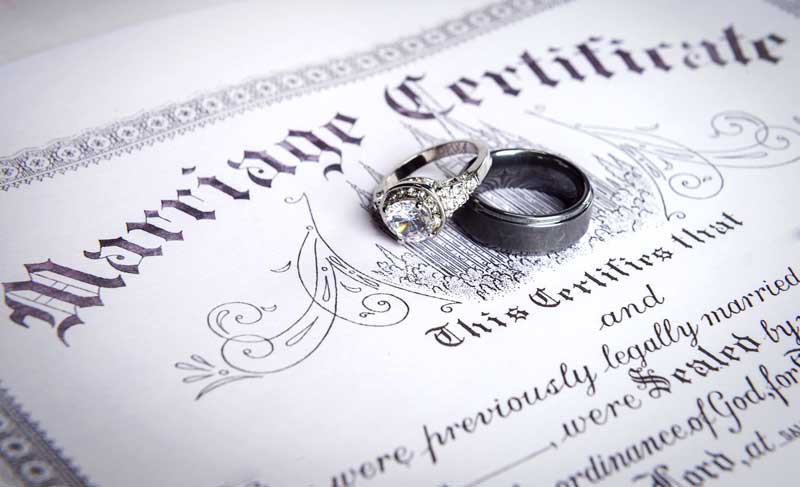
To qualify for VA’s DIC benefits, you must fulfill any of the following criteria:
- Married to a service member or Veteran at the time of their death
- Your marriage date is before January 1st, 1957
- You married a Veteran within 15 years of their discharge due to a service-connected disability
- You were married to a Veteran for at least one year
- Have a child with the deceased Veteran and lived together until their time of death. In case of separation, you were not at fault and must not currently be married.
If you are a surviving spouse of a Veteran who remarried after December 16th of 2003 and/or after you turned 57, you can apply or continue to receive DIC as a spouse eligible for VA benefits. Those who are spouses eligible for VA benefits can be eligible for different benefits at different times or milestones in their lives.
2. VA Home Loans
Top 20 VA Benefits for Disabled Veterans *Explained* (NEW!)
If you are a surviving spouse of a Veteran and did not remarry, you are eligible to apply for VA home loan benefits. However, the reason for death must be service-connected, such as disability, injury, killed in action, missing in action or if a service member is a prisoner of war.
You may be eligible to apply under three basic categories of VA home loans.
- VA IRRRL, i.e., VA Interest Rate Reduction Refinance Loans
- New purchase mortgages
- Cash-out Refinancing
However, you must fulfill specific requirements that are:
- You did not remarry after the death of a Veteran and that VA acknowledged their death as service-connected
- If you are a surviving spouse and remarried after turning 57
If you are a surviving spouse of a Veteran, contact the Department of Veterans Affairs to discuss your eligibility and apply for the DIC program. Once enrolled, you can apply with a lender and attach your VA form 26-1817.
You can also mail your VA Form 26-1817 and deceased veteran’s DD214 to VA’s loan eligibility center.
3. CHAMPVA

Whether you are the spouse of a disabled Veteran or a surviving spouse of a deceased U.S. military service member, you may be eligible for VA’s healthcare benefits. This program is known as the “Civilian Health and Medical Program for the Department of Veterans Affairs” (CHAMPVA).
You can get disability benefits for a condition when the Veteran has the VA rating of being permanently and totally disabled.
How to Get 100% Total and Permanent Disability VA [NEW!]
However, if you are the surviving spouse of a deceased Veteran, they must still have held P&T 100 disability VA ranking at the time of their death. Moreover, the reason of death must be a service-connected injury or condition.
Therefore, you must get proper documentation in writing from the Veteran’s doctor to avoid any hassles.
CHAMPVA offers different types of healthcare services to the spouses of U.S. Veterans. These include
-
Ambulatory surgery
-
Ambulance service
-
Inpatient services
-
Mental healthcare services
-
Skilled nursing care
-
Family planning and maternity services
-
Durable medical equipment
-
Outpatient services
-
Pharmacy for prescribed medicines
-
Transplants
4. Survivor’s and Dependent’s Educational Assistance Program

The Survivor’s and Dependent’s Education Assistance or (DEA) is a program for spouses eligible for VA benefits. This program by the U.S. Department of Veterans Affairs offers assistance to all eligible spouses of Veterans with permanent and total VA disability ratings due to service-connected conditions.
However, it will be up to VA’s discretion to determine whether the Veteran’s disability ranking makes you eligible to receive these disability benefits as a spouse.
You must remember that the VA also takes the Veteran’s character of discharge into account, especially when you are applying for benefits such as education benefits for dependents, pension benefits, VA home loans etc.
If you are a spouse of a Veteran dishonorably discharged, you may look into VA’s requirements. Typically the life insurance benefits do not have the character of the discharge as a pre-requisite to qualify.
5. VA Education Benefits
Top 25 Disabled Veteran Benefits (You Might Not Know About!)
Those who are eligible for VA benefits for spouses can avail education benefits by the Department of Veterans Affairs. According to the official resources available on VA.gov, if you are a spouse caring for a disabled Veteran of the U.S. military, you may be eligible for skills training and career counseling.
Some of the opportunities that may be available to you under the Vocational Rehabilitation and Employment program by the VA are:
-
Personalized support – to receive educational counseling
-
Career assistance – to help caregiver spouses find an adequate career as per their qualifications and interests
-
Benefits Coaching – so you can learn how to make the most out of your VA benefits and assistance programs
If you wish to apply, you can seek assistance from your local VA regional office.
Chapter 35 – Survivors’ and Dependents’ Educational Assistance program by the VA provides you up to 3 years of full-time education benefits. However, this only applies to Veterans who have the highest VA disability rating, i.e., 100 percent Permanent and Total (P&T) disability.
Here are the VA benefits for spouses you can avail of under this program:
-
You can get an education at a college in business, vocational and technical courses.
-
You can use this benefit program to obtain a GED or high school diploma from anywhere within the United States.
-
You can pursue independent studies at a university or choose distance learning courses.
-
Apply for correspondence courses
-
You can get deficiency, remedial and refresher training to renew your skills or improve your professional shortcomings and weaknesses. This will improve your chances of seeking future employment.
-
You can pay for the test such as licenses, educational or professional certifications. This will help you seek a new job, keep your current job or advance in your career.
Once VA categorizes you under spouses eligible for VA benefits, you have up to ten years for your eligibility date to apply for dependent benefits.
6. Military Spouse Preference Program
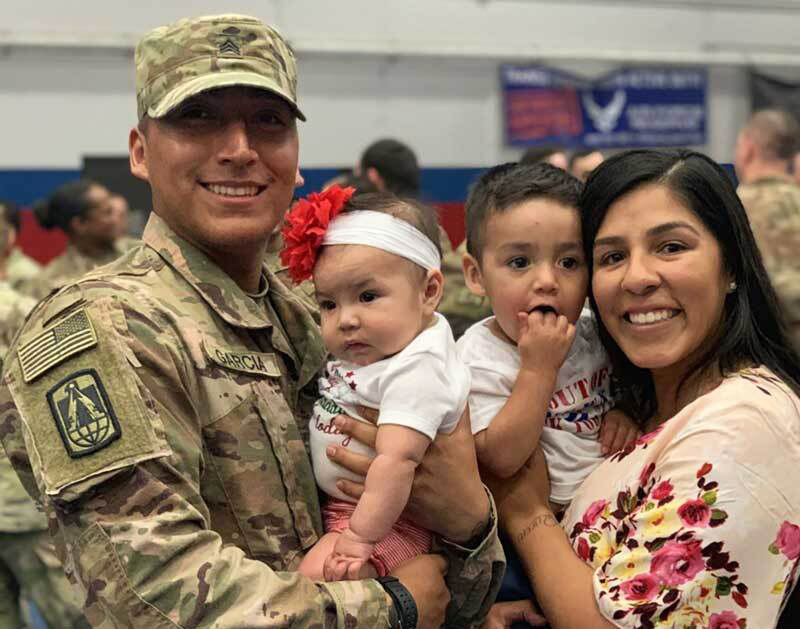
Veteran Benefits for Spouses
The Department of Defense Military Spouse Preference Program or MSP assists military spouses in securing the desired employment. Under this program, as a spouse, you will get preferential treatment for employment in placements positions open for a civilian in the Department of Defense (DOD).
If you wish to know more, you can contact your local Human Resource Office (HRO) or Civilian Personnel Office (CPO) for ongoing positions.
7. Military Spouse Scholarships

As active service member or Veterans’ partners who are spouses eligible for VA benefits, you may be eligible for state and federal military-specific scholarships, including:
- MyCAA – An education benefit or financing program for military spouses by the Department of Defense
There are numerous non-profit scholarships for spouses eligible for VA benefits such as Paralyzed Veterans of America (PVA), National Military Family Association (NMFA) etc.
Other VA benefits for spouses may include:
-
Free on-base courses
-
Free annual passes for National parks
-
Military lodging for traveling
-
Legal Assistance
-
Tax benefits etc
8. Life Insurance Benefits for Surviving Spouses
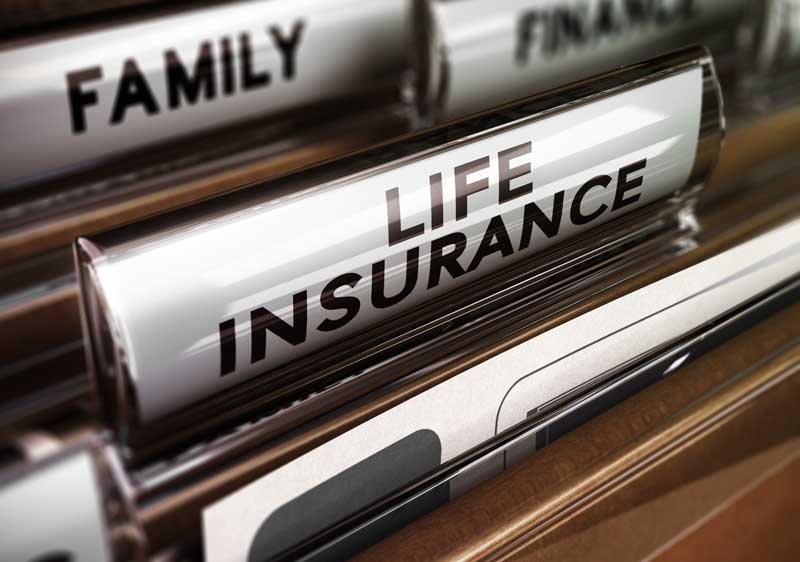
As military spouses who are eligible for VA benefits for spouses, you may be able to convert your spousal insurance coverage (FSGLI) into an individual plan with a private insurance provider within 120 days of the Veteran’s end of military services. And you do not need to provide evidence of good health.
If you are a spouse nominated as a beneficiary of VGLI, SGLI, TSGLI or FSGLI coverage programs, you may use VA’s beneficially service for counseling and online Will preparation. This will help you avoid seeking any legal counsel and pay the hefty fee to a lawyer.
If you have insurance under VGLI and SGLI, the VA may also offer you an accelerated benefit. This allows you access to half the money limit of your insurance policy if you have a terminal illness or are diagnosed with less than nine months of life expectancy.
9. VA Pension Benefits
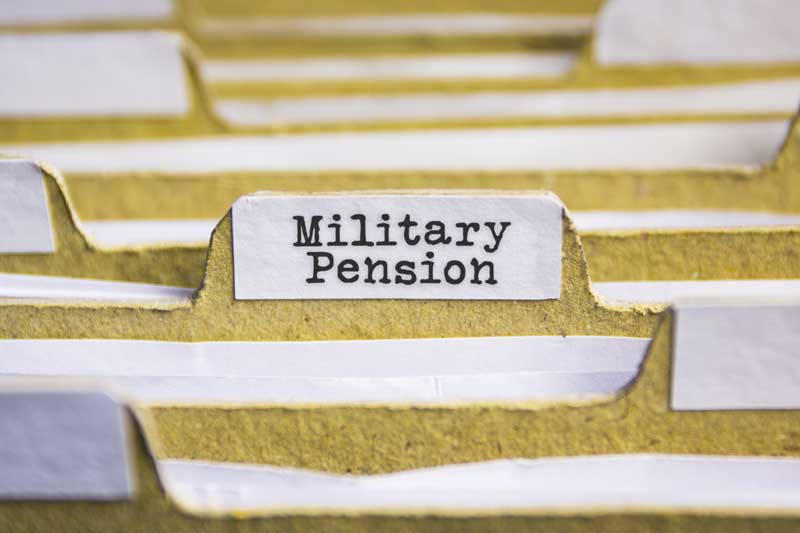
You can also qualify for need-based pension benefits by the VA. However, you must be a surviving spouse of a wartime Veteran and fulfill certain VA requirements.
If you are a housebound surviving spouse of a Veteran and unable to perform any activity without assistance, you may also qualify to receive an additional pension allowance.
In any of the above cases, the following criteria will apply when it comes to the deceased Veteran:
-
They served on or before September 7th, 1980, and the Veteran had 90 days of active duty time on the record, including at least one day during wartime.
-
Veterans who served after September 7th, 1980, must have served at least two years or 24 months with at least one day during wartime.
-
The Veteran was not dishonorably discharged.
10. VA Memorial Benefits for Surviving Spouses
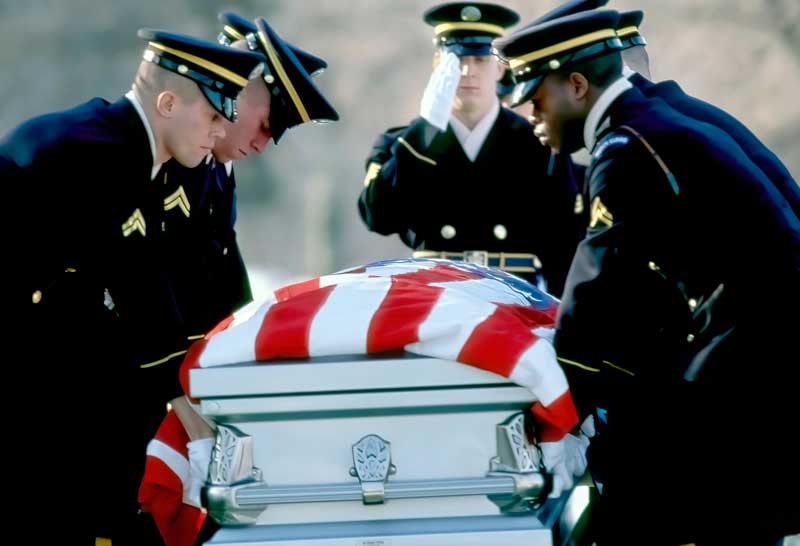
Surviving spouses of Veterans who have passed are spouses eligible for VA benefits who may qualify for burial benefits by the Department of Veterans Affairs, including interment at one of VA’s national cemeteries. The benefits also include a free headstone and ongoing care of the Veterans’ graves.
However, it is not compulsory to bury Veterans at a VA cemetery; you will still be eligible for memorial benefits if you choose a civilian burial ground.
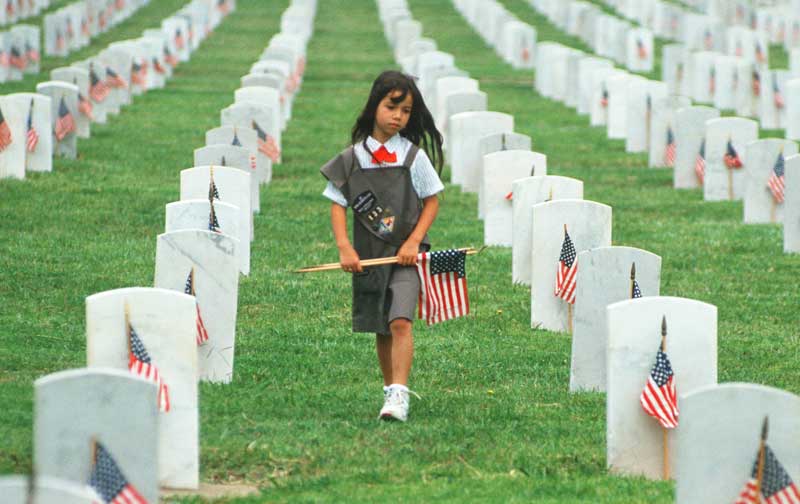
You can check the eligibility by filing an application for VA Form 40-10007 and post it to the VA’s National Cemetery Scheduling Office.
You can also fax the form to 1-855-840-8299.
If the Veteran’s death was due to service-connected conditions, the VA would contribute up to $2,000 toward the burial costs. However, if the cause of death was not service-connected, you may receive up to $796.
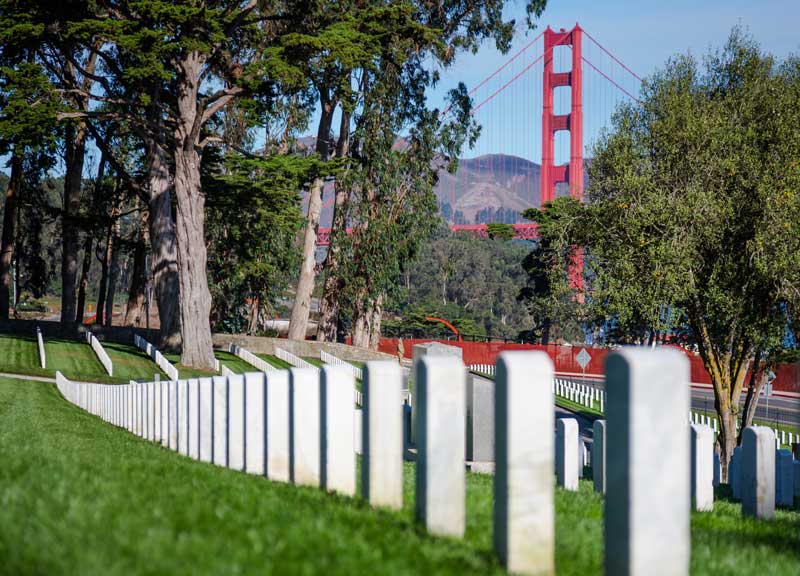
Documentation Required
You will need to submit the following documents to the VA certifying your marriage to the Veteran until his time of death.
-
VA Form 21-534 – for DIC, death pension and accrued benefits
-
Copy of the Veteran’s death certificate
-
A copy DD214, i.e., Veteran’s discharge certificate
-
A copy of your marriage certificate or any other proof of marriage
Spouses causing wrongful or intentional death of a Veteran are not eligible to receive any benefits associated with the Veteran’s death.
11. Other Financial Benefits
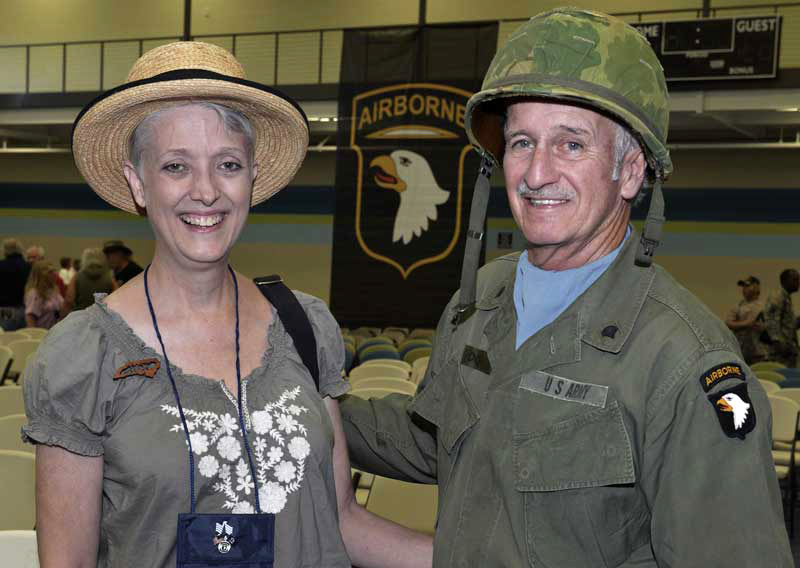
Apart from all the above benefits, if you are spouses eligible for VA benefits and your loved one has a 100 permanent and total VA rating, you may be entitled to the following payment increase. Most promisingly, you do not have to apply for these increments at all; they become automatically applicable due to your eligibility.
You receive these additional financial benefit payments along with other disability compensation awarded to the Veteran. The payment structure is as follows:
-
If you are a Veteran spouse with no children, you may receive $150 per month
-
If you are a Veteran spouse with at least one child, you may be entitled to $259 per month
-
For every additional child, you will receive $75 per month.
However, you must always confirm it with your local VA regional office. Simply call them and ask for personnel who can provide accurate information about VA benefits you are entitled to. Moreover, ask them if there are any state-level benefits that you can avail to make your life a little easier.
Check for Other State Level Benefits

If you are spouses eligible for VA benefits you may also qualify for certain local benefits in your state of residence. These may include
-
Property tax exemption
-
Employment assistance
-
Free counseling service, and more.
However, every state has its own infrastructure, so you may check with your local U.S. VA office to find out what state-level benefits you can avail as a spouse of an active service member or a Veteran of the U.S military services.
For those who are spouses eligible for VA benefits, we’ve addressed how you can qualify for useful benefits like life insurance, healthcare or education benefits. We’re here to help the Veterans and service members in our community who may not have a VA disability rating yet.
About the Author
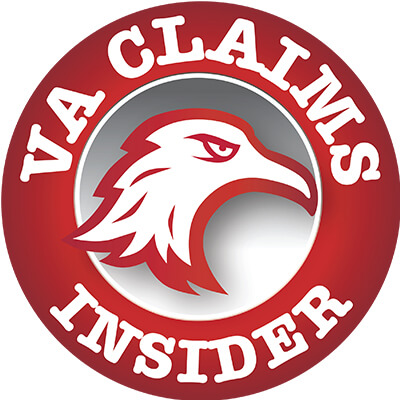
About VA Claims Insider
VA Claims Insider is an education-based coaching/consulting company. We’re here for disabled veterans exploring eligibility for increased VA disability benefits and who wish to learn more about that process. We also connect veterans with independent medical professionals in our referral network for medical examinations, disability evaluations, and credible independent medical opinions and nexus statements (medical nexus letters) for a wide range of disability conditions.


